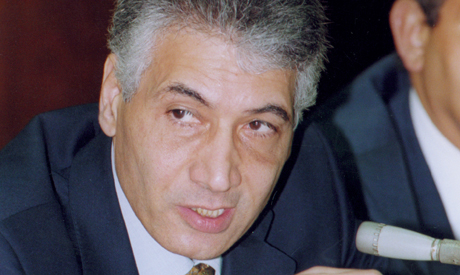
Egypt’s ceasefire proposal to end the escalating conflict between Hamas and Israel will not be amended, Foreign Minister Sameh Shoukry said Monday night, despite Hamas’ rejection of it when proposed last week.
Shoukry’s comments came in a joint press conference with United Nations Secretary General Ban Ki Moon, who said that he is looking not only to stop the violence in Gaza but also to find a lasting solution to “address the root causes” of the decades-old conflict.
The foreign minister stressed: “The core [of the ceasefire proposal] is to protect the Palestinian people.” He added: “When we drafted it we were aiming at having it accepted by both parties to help them deal with all issues of mutual interest.” He highlighted the provision in the proposal for opening the Egyptian controlled Rafah border “when stability is established”.
The 2012 ceasefire stipulated the opening of Gaza’s borders within 24-hours of the acceptance of the agreement. Shoukry said that security issues in the volatile Sinai Peninsula must be taken into account, as well as the “needs of the Palestinian people”.
Hamas spokesman Fawzi Bourham said on Sunday that the group is “keen” for Egypt to play a role in the ceasefire talks. He also confirmed that Hamas handed over its terms for a ceasefire to Turkey Qatar and the Arab League and countries are welcome to “move diplomatically and politically with the decision-makers including Egypt”. The group have called for the lifting of the air, land and sea blockade imposed upon Gaza by Israel.
Ban, who arrived in Cairo on Monday from Kuwait as part of a regional tour to find an end to the crisis, said: “too many civilians and children are paying prise for escalation” adding that “the images we see sear the soul”.
Last Thursday Israel launched a ground operation in Gaza citing the rejection of the ceasefire and the breaking of a “humanitarian pause”. Israeli Prime Minister Benjamin Netanyahu said the ground offensive “will be expanded until the goal is achieved, restoring quiet to the citizens of Israel for a long period”. The stated targets are Hamas members and missile stockpiles in the Gaza Strip.
Ban stressed on Monday: “Gaza is an open wound and Band-Aid won’t help.” Ban said he came to Cairo with two messages: “First, the violence must stop. It must stop now [and] all sides must allow space” for humanitarian assistance in Gaza. The second was to change the “status quo” in Gaza, saying: “We cannot claim victory for going back to how things were before”.
Following his meeting at the foreign ministry, Ban is scheduled to meet with Arab League Secretary General Nabil El-Araby and United States Secretary of State John Kerry following his arrival from Washington on Monday night.
Ban’s visit to Cairo comes on the heels of a meeting in Qatar with Palestinian Authority President Mahmoud Abbas on Sunday. He is set to travel to Jerusalem, Ramallah and Amman in the coming days.
Ahead of their meeting Ban reiterated his call for a ceasefire and pledged to continue efforts to achieve this as he travels the region. He called for “an immediate end to the Israeli military operation in Gaza and the rocket fire by Hamas and Islamic Jihad”.
Egypt’s relationship with Hamas deteriorated following the ouster of former president Mohamed Morsi last year. Hamas is an offshoot of the Muslim Brotherhood, of which Morsi is a member. In March an Egyptian court issued a ban on Hamas activities inside Egypt and ordered the seizure of the group’s offices and assets.
Israel accepted the Egypt’s ceasefire proposal last week and ordered its forces to stop airstrikes on the densely populated Gaza Strip. Rockets continued to be fired towards Israel and the airstrikes resumed.


